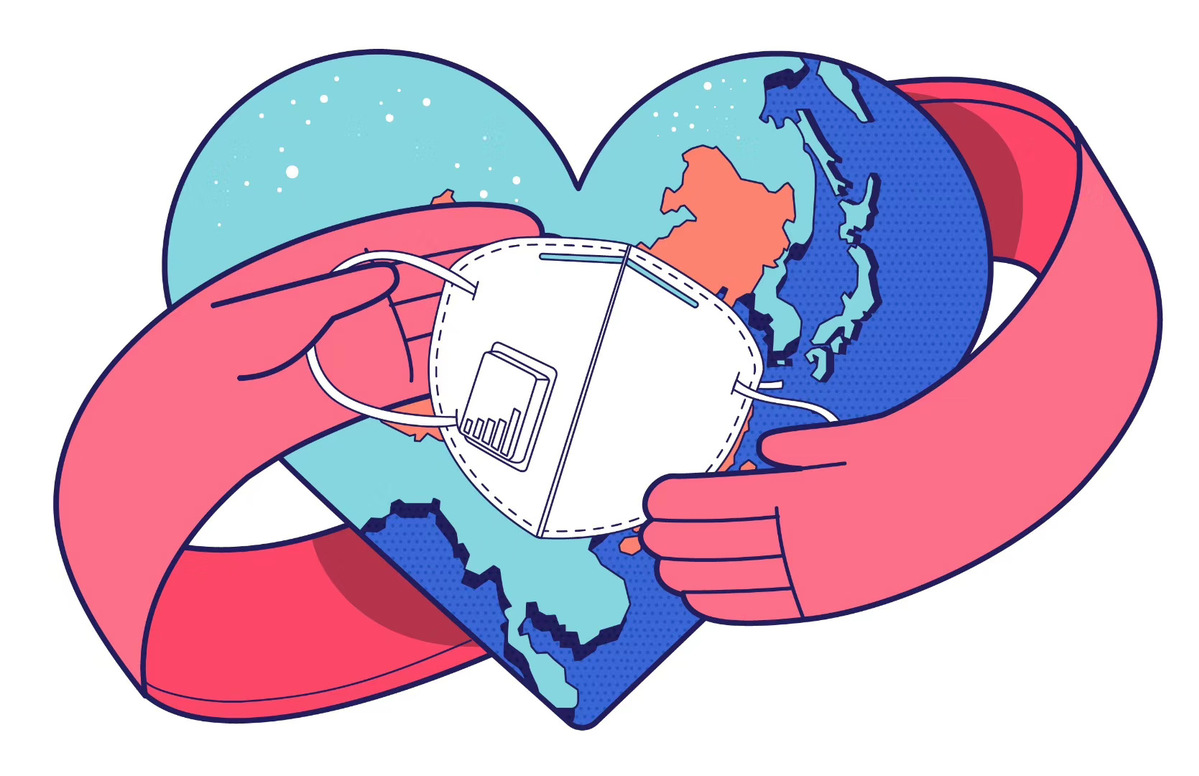Global 'make-or-break' moment calls for unity


We are all living through a global crisis like no other.
The COVID-19 pandemic continues its march of suffering and death around the world. It is a health crisis, an economic crisis, a social crisis, a human crisis.
The pandemic has laid bare severe and systemic inequalities both within and between countries and communities.
More broadly, it has underscored the world's fragilities-not just in the face of an epic health emergency, but in our faltering response to the climate crisis, lawlessness in cyberspace, and the risks of nuclear proliferation.
It is obvious that the only way to recover better is by working together. But that is also far from guaranteed. Done right, we can steer the recovery toward a more inclusive, resilient and sustainable path and the achievement of the Sustainable Development Goals and the Paris Agreement on Climate Change.
But poorly coordinated policies risk locking in-or even worsening-already unsustainable inequalities, reversing hard-won development gains and poverty reduction, and a high emissions future.
More than ever, we need unity and solidarity for action.
The unfolding climate crisis starkly illustrates the stakes and the imperative for action. We need to turn the recovery into a real opportunity to do things right for the future-and our response to the climate crisis is pivotal.
We are seeing some encouraging signs as a result. But we have a very long way to go.
Global heating is accelerating. Floods, chronic air pollution, droughts and wildfires are destroying lives, businesses and ecosystems. Shortages of food and water are already fueling armed conflict, and there is likely much worse to come without greater action.
These catastrophic consequences are very well known. But so, too, are the solutions.
Put simply, we must limit temperature increases to 1.5C and protect those already being hit hardest. This means we must achieve net-zero emissions well before 2050, and 45 percent cuts by 2030.
We have no excuse for failing to meet these goals. We have the policies, the technology and knowhow, and the global framework in the Paris Agreement to achieve this.
And we have a global groundswell of public pressure for change. This will only grow, because people everywhere know their health and prosperity depend on it.
What is urgently needed now is greater leadership from those who make decisions on their behalf.
China was an essential partner in the adoption and ratification of the Paris Agreement. But five years later, the Paris goals risk slipping out of reach.
The time for small steps has passed. What is needed now is transformational change. And if there was hesitation before about the possibility of such large-scale change, the COVID-19 pandemic should erase any doubts.
In the space of just months, billions of people have had to change how they work, consume, move around and interact. Trillions of dollars have been mobilized to save lives and livelihoods.
Now, in countries that are emerging from the health crisis, the task is to revive economic growth and jobs. Unprecedented sums of taxpayers' money are being spent to do so. How this money is spent can either serve as a slingshot to hurtle climate action forward, or it can set it back many years, which science dictates we cannot afford.
Quite simply, how the world recovers from COVID-19 is a "make-or-break moment" for the health of our planet.
We have a narrow window, but a vast opportunity, to rebuild a world that is cleaner, fairer and safer for all. I have asked all countries to consider six climate-positive actions as they rescue, rebuild and reset their economies.
First, we need to make our societies more resilient and ensure a just transition.
Second, we need green jobs and sustainable growth.
Third, bailouts of industry, aviation and shipping should be conditional on aligning with the goals of the Paris Agreement.
Fourth, we need to stop wasting money on fossil fuel subsidies and the funding of coal.
Fifth, we need to consider climate risk in all decision-making. This is more important than ever in the coming months as companies, investors and countries make far-reaching financial decisions about the future.
Sixth, we need to work together. Global challenges require global solutions. It is imperative that G20 countries lead by example. I have asked all G20 countries to lead the green recovery, commit to net-zero emissions before 2050 and submit more ambitious national climate plans to the Paris Agreement before COP 26 in Glasgow next year.
In the global race to go green, nations and companies that move quickly will reap vast competitive advantages. This is why global investors are shunning fossil fuels and searching for clean energy to invest in at scale.
While emissions remain high, China has shown a clear capacity for climate leadership. In the past five years, China has deployed more solar and wind capacity than any other country. More than 50 percent of electric vehicles in the world are sold in China. China also makes 99 percent of the world's electric buses. As the world moves from fossil fuels to clean energy, China can reap huge benefits by taking bold actions: stronger growth, more jobs, cleaner air, better health.
Like COVID-19, climate change respects no borders. By seizing the mantle of leadership, China can help protect all people who share this planet. And young people in China-and around the world-can help continue to lead the way to build an inclusive and sustainable future for people and the planet.
The author is secretary-general of the United Nations.

































